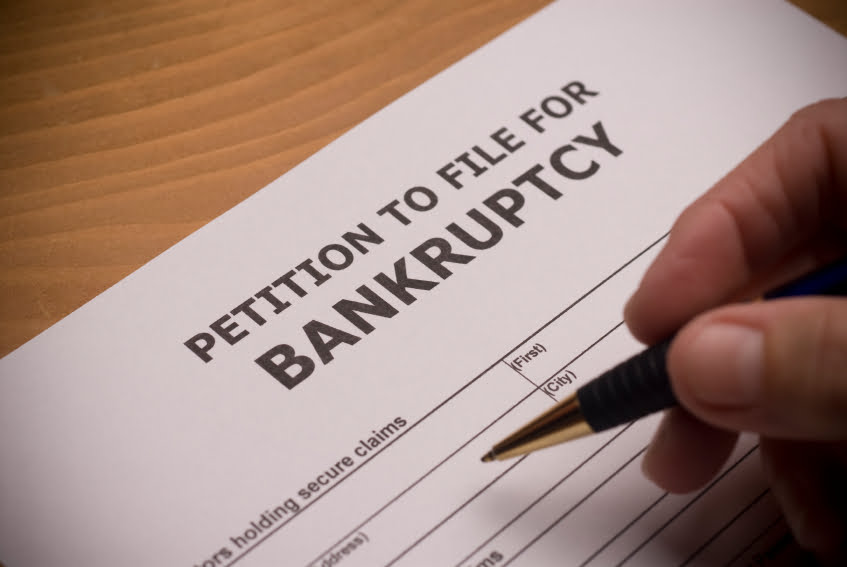
7 Things to Avoid When Filing Bankruptcy in Texas
 If you are overwhelmed with debt, filing bankruptcy may be a good option for you. It can help you eliminate debt, obtain manageable payments, and address the past so you can plan for the future. A skilled bankruptcy lawyer at Allmand Law can evaluate your situation and help you understand your legal options. Whether you file Chapter 7 or Chapter 13, you deserve to have a knowledgeable legal advisor on your side. Call us today at 214-884-4020.
If you are overwhelmed with debt, filing bankruptcy may be a good option for you. It can help you eliminate debt, obtain manageable payments, and address the past so you can plan for the future. A skilled bankruptcy lawyer at Allmand Law can evaluate your situation and help you understand your legal options. Whether you file Chapter 7 or Chapter 13, you deserve to have a knowledgeable legal advisor on your side. Call us today at 214-884-4020.
1. Avoid Accumulating New Debt
It can be tempting to take out a new credit card or a personal loan when finances are difficult. However, any new debt you obtain within 12 weeks before filing bankruptcy can have a negative impact on your case. Creditors may claim that you knew you were filing bankruptcy and got into debt without the intention of repaying it. They may accuse you of fraud.
It’s best to avoid obtaining new debt altogether. However, if you must charge something on a credit card, make sure it’s not a luxury item or cash advance. Living expenses, such as groceries or utility bills do not face as much scrutiny by the bankruptcy court.
2. Avoid Using Retirement Funds
You may be searching for a way to pay debts and cover living expenses. However, using retirement funds can hurt you now and in the future. Withdrawing retirement funds before retirement age can result in heavy tax penalties. You may also cause yourself a problem in the future when you don’t have enough money to comfortably retire. In most cases, you will be able to keep your retirement accounts when filing bankruptcy.
3. Avoid Moving or Transferring Assets
When filing bankruptcy, you have to disclose all of your assets as well as those you’ve recently disposed of. If you recently sold assets or transferred them to someone else, such as a friend or family member, you may be accused of fraud for trying to hide assets. Bankruptcy provides you a way to eliminate or better manage debt; however, it often uses current assets to pay off those debts. If you want to keep your assets, consult a bankruptcy lawyer before filing bankruptcy.
4. Avoid Selectively Repaying Debt
You may want to make sure certain debts are paid before filing bankruptcy. For example, if you have personal loans from friends or family members, or if you have unpaid bills from your primary care doctor, you may want to make sure those get paid before eliminating the rest of your debt. However, this is called “preferential payment,” and it’s not favored by the bankruptcy court. There is a specific process that you are required to follow when repaying debts, and selectively repaying those who may not be a legal priority is not allowed. The bankruptcy court may request those funds back from the creditors when you go through the process of filing bankruptcy.
5. Avoid Providing the Court With Inaccurate Information
You will have to provide the bankruptcy court with a plethora of information. It can seem extremely invasive to disclose such personal information. However, if you provide inaccurate information or are not completely truthful, you can face criminal and civil penalties.
6. Don’t Avoid Paying Income Taxes
If you owe past due taxes or feel you can’t afford income taxes, you may be tempted to avoid filing with the IRS altogether. However, you must report your tax debts to the court when filing bankruptcy. If you haven’t filed taxes or failed to pay past due taxes, you may be unable to discharge that debt.
7. Don’t Avoid Filing Bankruptcy
Many people don’t want to file bankruptcy, so they avoid it until their financial situation is overwhelming. You may attempt to use all of your savings and sell personal belongings to pay debts. Instead, you should consult with a bankruptcy attorney and learn about your legal options for filing bankruptcy.

